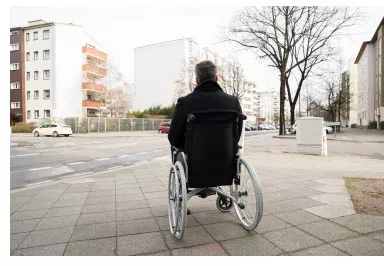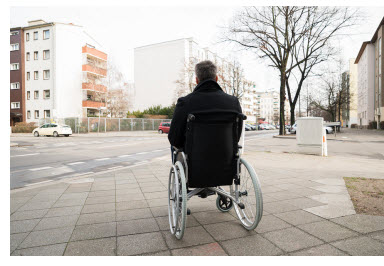
Concern that the proliferation of smart cites will widen the gap between persons with disabilities, aging communities and the rest of the population, G3ict and World ENABLED announced the global Defining Accessible Smart Cities Initiative last month. The initiative is sponsored by Council Lead Partner Microsoft. The objective is both smart and compassionate: To bring together global industry, government, and civil society experts and practitioners to define how a smart city can also be a digitally inclusive city. – Philip Bane
The initiative backers cite a report on disability produced jointly by the World Health Organization and the World Bank suggesting more than 1 billion people in the world with disabilities already have generally poorer health, lower education achievements, fewer economic opportunities and higher rates of poverty than people without disabilities.
 Their concern is that the greater reliance on technology that is the foundation of smart cities -- along with the existing and possibly growing digital divide -- will exacerbate those negative outcomes for persons with disabilities.
Their concern is that the greater reliance on technology that is the foundation of smart cities -- along with the existing and possibly growing digital divide -- will exacerbate those negative outcomes for persons with disabilities.
Using technology to empower
"Technology empowers persons with disabilities to achieve more in the places where they live and work, As cities evolve and integrate new technologies," says Microsoft Chief Accessibility Officer Jenny Lay-Flurrie, "we can help them define what it means to be smart – and accessible – to make sure no one is left behind."
The Defining Accessible Smart Cities Initiative will focus on the interaction between increasing urbanization and integrative technology. The intent is to raise awareness in the coming year about the role that accessible technology should play in the planning, deployment and functioning of smart cities globally and how smart cities can better engage persons with disabilities and aging communities in those processes.
Sharing model policies and best practices
The effort, explained James Thurston, Vice President for Global Strategy and Development at G3ict, will include building a significant knowledge base, including core principles, inventories of technical standards and model policies for accessible cities, as well as a platform for smart cities to share best practices and innovate new inclusive technologies.
G3ict is the UN's Global Initiative for Inclusive Information and Communication Technologies. World ENABLED is a global education, communications and strategic consulting group that supports companies and governments with the full implementation of legal mandates that promote the rights of persons with disabilities.
Download their concept paper Smart Cities and Digital Inclusion to learn more about the initiative.
Related topics…
Microsoft soundscapes help guide the blind through cities
German e-health pilot will test passive digital monitoring of the elderly
#CCEOST#



